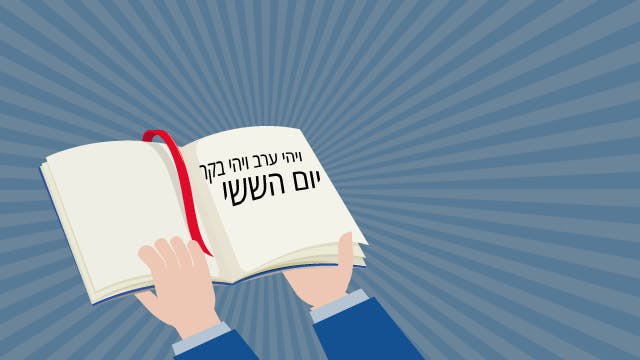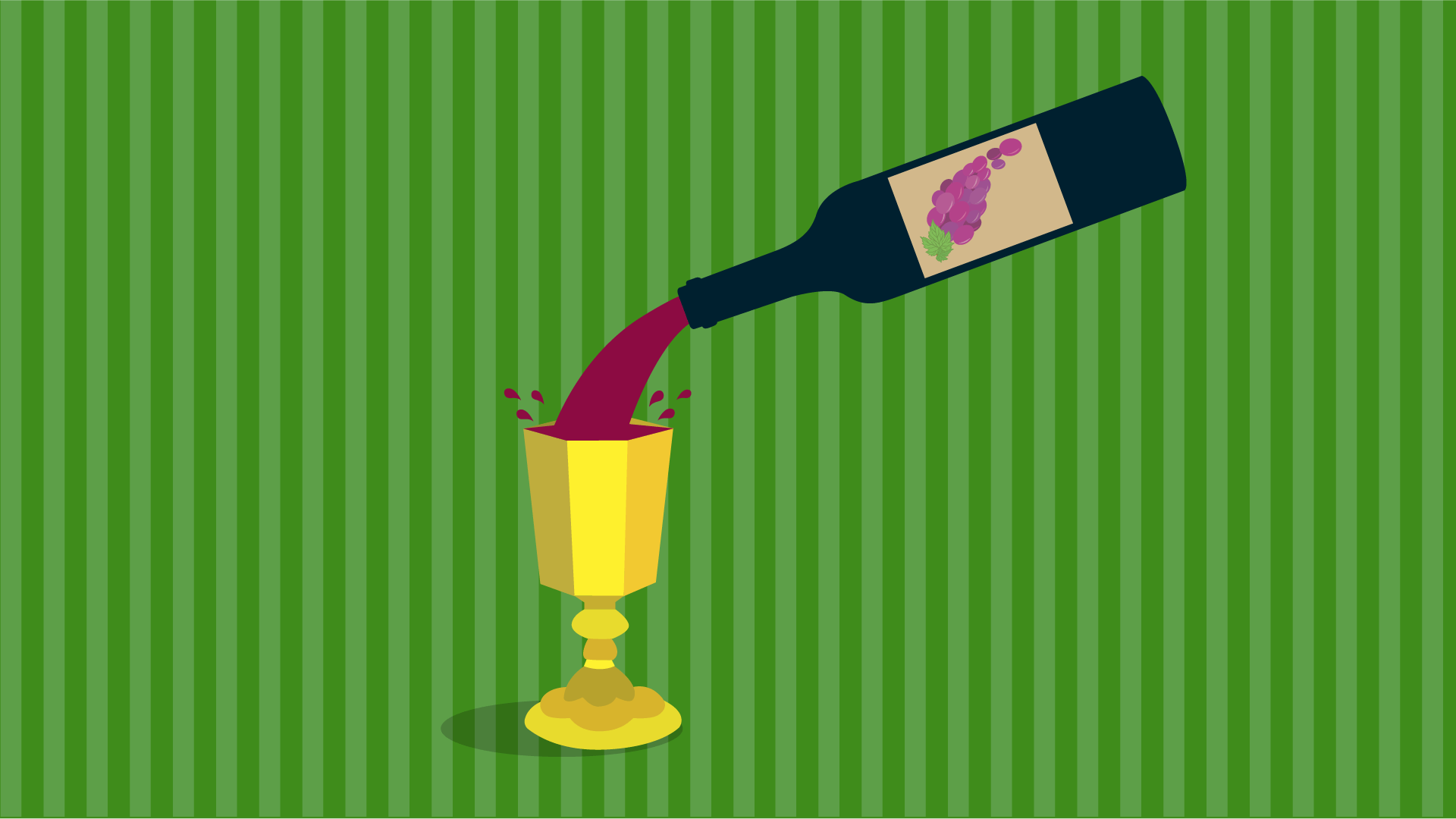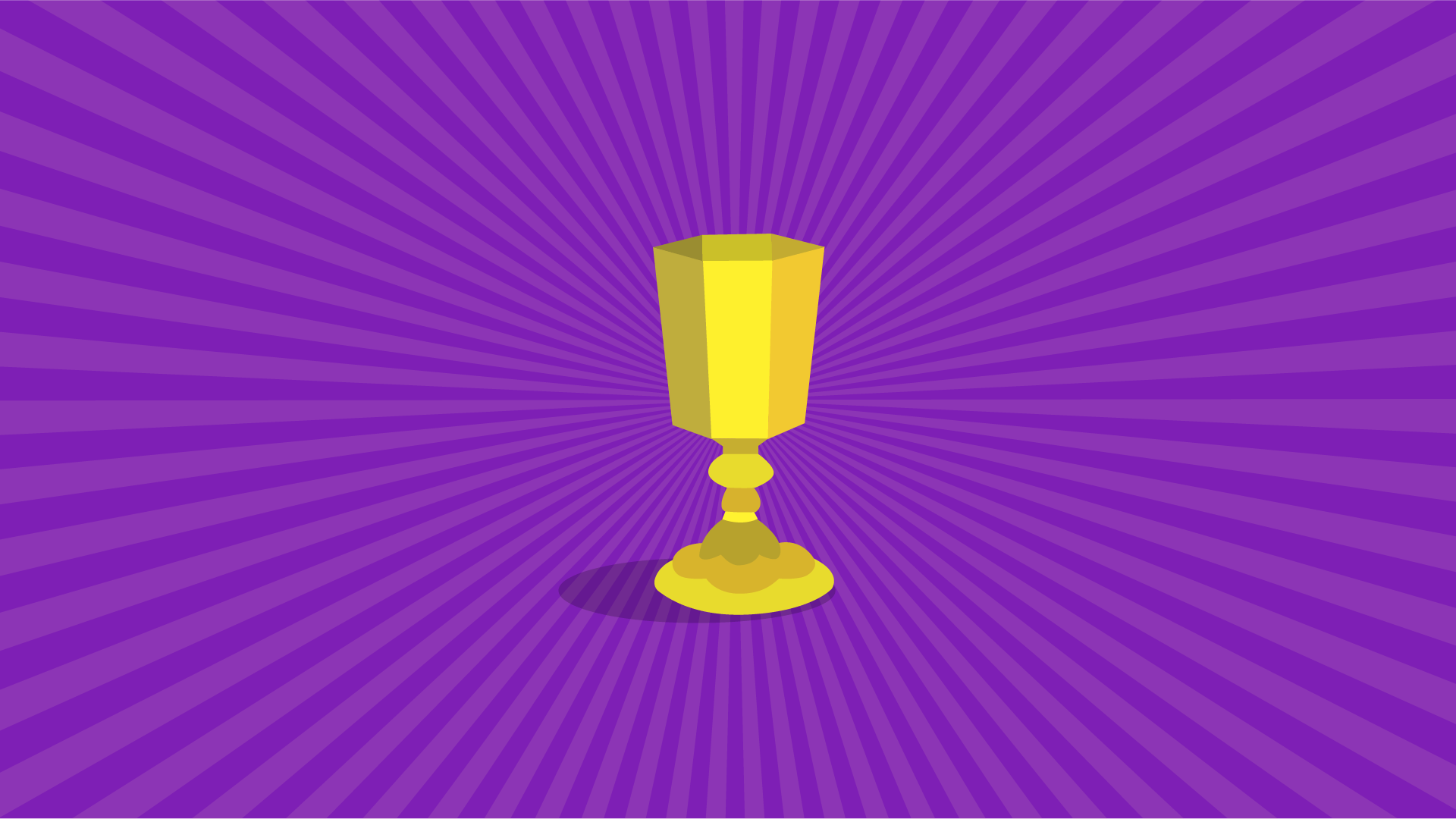Shabbat Kiddush: Meaning, What Is It? What is a Kiddush Cup Used for?
What is Kiddush?
Kiddush is one of the central rituals of Shabbat. It’s a blessing said over a cup of wine every Friday night and Saturday morning before the traditional Shabbat meals. For many people, the words and melody of Kiddush evoke some of their most primal Jewish memories.
Reciting Kiddush is a fulfillment of the Biblical command to “remember the day of Shabbat and keep it holy.” The verses and blessings that we recite in Kiddush proclaim the holiness of Shabbat, and trace it back to God’s creation of the world.

Kiddush Meaning
Kiddush, or קידוש means “an act of sanctification.” It’s commonly pronounced “kid-ish” by English speakers, whereas the Hebrew pronunciation is “kee-doosh.”
Why Do We Drink Wine On Shabbat?
Ideally, the Kiddush blessings are recited over a cup of wine or grape juice, which are similarly meant to symbolize the special status of this mitzvah. If for some reason someone can’t buy or consume a grape-based drink, any kind of alcohol or fruit juice can be used. In the absence of a special drink, Kiddush can be recited over Challah bread to start the meal.

The Meaning of Kiddush
There’s a fundamental paradox about the Kiddush blessing, as we alluded to above. The Torah says that on the seventh day of Creation, God sanctified the Shabbat and made it a holy day (see Genesis 2:3). It’s really quite strange then, that every Friday night, we stand up and proclaim that Shabbat is a holy day. It seems repetitive at best, if not flat out ridiculous!
The Rabbis of the Talmud (Shabbat 119b) pick up on this seeming contradiction. They say that our recitation of Kiddush is not some unnecessary repetition. Rather, when we make Kiddush and proclaim the holiness of Shabbat, we actually become God’s partners in Creation.
How so? Well, Shabbat is a day devoted to recognizing that God is the Creator of all that exists. This recognition is at the core of God’s purpose in creating the world – and that’s exactly what we do when we recite Kiddush: We acknowledge God as our Creator who stands behind all of Creation, the true source of all that we have.
In this way, our Kiddush is the perfect complement to God’s own “Kiddush.” On the very first Shabbat, God stopped adding to Creation and called this day “holy.” We too refrain from our mundane creative activities every seventh day, and together with God, declare Shabbat as a holy time.
Rabbi Fohrman dives further into the questions of why rest on Shabbat is so important, and what counts as "purposeful" rest on the Sabbath.

What Is A Kiddush Cup & What Is It Used For?
Kiddush is traditionally recited over a special cup, often made of silver with special engravings or filigree, meant to give honor to this blessing. Sometimes, Kiddush cups are passed down as family heirlooms, or given as wedding or bar mitzvah gifts. But don’t worry, if you don’t have a silver Kiddush cup, any cup can be used.
A Kiddush cup should be able to hold at least a revi'it of liquid. A revi’it is a Talmudic measurement that’s slightly more than 3 liquid ounces. Like many aspects of Jewish practice, there is debate around the exact volume of this measurement. Some opinions say that it is equal to 3.3oz, others place it at 3.8oz, and there are other opinions as well. Regardless of the size of the cup, it is customary to fill it to the brim with wine when reciting Kiddush, as a symbol of the fullness of our blessing and joy.
The person who recites Kiddush drinks a couple sips of the wine (a cheekful or 2oz) and then passes their cup to guests around the table, or pours it into cups for each person. Some families pour the wine for each person individually before reciting Kiddush, or use a Kiddush fountain that doles out wine evenly into small cups.

The Shabbat Kiddush
Kiddush is said at the beginning of the Shabbat evening meal on Friday night, and then again on Shabbat day before the lunchtime meal. Different texts are used for the daytime and evening Kiddush, culled from different Biblical texts that discuss Shabbat.
Kiddush Friday Night
Two Kiddush blessings are recited on Friday Night before the evening Shabbat meal.
Friday Night Kiddush in Hebrew & English
The Friday night Kiddush begins with verses from Genesis (ch.1:31 – ch.2:3) that describe the very first Shabbat, the seventh day of Creation.
וַיְהִי עֶרֶב וַיְהִי בקֶר יום הַשִּׁשִּׁי. וַיְכֻלּוּ הַשָּׁמַיִם וְהָאָרֶץ וְכָל צְבָאָם: וַיְכַל אֱלהִים בַּיּום הַשְּׁבִיעִי מְלַאכְתּו אֲשֶׁר עָשָׂה. וַיִּשְׁבּת בַּיּום הַשְּׁבִיעִי מִכָּל מְלַאכְתּו אֲשֶׁר עָשָׂה: וַיְבָרֶךְ אֱלהִים אֶת יום הַשְּׁבִיעִי וַיְקַדֵּשׁ אתו. כִּי בו שָׁבַת מִכָּל מְלַאכְתּו אֲשֶׁר בָּרָא אֱלהִים לַעֲשׂות:
And there was evening and there was morning, the sixth day. The heaven and the earth were finished, and all their array. On the seventh day God finished the work that He had been doing, and He ceased on the seventh day from all the work that He had done. And God blessed the seventh day and declared it holy, because on it God ceased from all the work of creation that He had done.
Kiddush Blessing Over Wine
This is followed by two blessings: One over the wine/grape juice, and one about Shabbat.
סַבְרִי מָרָנָן וְרַבָּנָן וְרַבּותַי:
בָּרוּךְ אַתָּה ה' אֱלקינוּ מֶלֶךְ הָעולָם בּורֵא פְּרִי הַגָּפֶן:
בָּרוּךְ אַתָּה ה' אֱלקינוּ מֶלֶךְ הָעולָם. אֲשֶׁר קִדְּשָׁנוּ בְּמִצְותָיו וְרָצָה בָנוּ. וְשַׁבַּת קָדְשׁו בְּאַהֲבָה וּבְרָצון הִנְחִילָנוּ. זִכָּרון לְמַעֲשֵׂה בְרֵאשִׁית. (כִּי הוּא יום) תְּחִלָּה לְמִקְרָאֵי קדֶשׁ זֵכֶר לִיצִיאַת מִצְרָיִם. (כִּי בָנוּ בָחַרְתָּ וְאותָנוּ קִדַּשְׁתָּ מִכָּל הָעַמִּים) וְשַׁבַּת קָדְשְׁךָ בְּאַהֲבָה וּבְרָצון הִנְחַלְתָּנוּ: בָּרוּךְ אַתָּה ה' מְקַדֵּשׁ הַשַּׁבָּת:
Blessed are you God, our Lord, King of the Universe, who creates the fruit of the vine.
Blessed are you God, our Lord, King of the Universe, who has sanctified us with His commandments and desired us. And with love and goodwill has invested us with His holy Shabbat, a remembrance of the act of Creation. (For it is) the first of the holy festivals, commemorating the exodus from Egypt. (For You have chosen us and sanctified us, among all the nations) and with love and goodwill You have given us Your Holy Sabbath as an inheritance.
Blessed are You God, who sanctifies the Shabbat.
Kiddush Shabbat Day
As a opposed to the nighttime Kiddush which is a Biblically mandated commandment, the daytime Kiddush was instituted by the Rabbis. For this reason, there isn’t a uniform text that is used, and customs vary among different communities. Below you can find blessings used for Saturday morning Kiddush, with text in English and Hebrew.
Isaiah Chapter 58 Verses 13–14
Some begin the daytime Kiddush with these verses from Isaiah (58:13–14). This is a common custom among Jews of Sefardic (Spanish, Middle Eastern, North African) descent.
אִם תָּשִׁ֤יב מִשַּׁבָּת֙ רַגְלֶ֔ךָ עֲשׂ֥וֹת חֲפָצֶ֖יךָ בְּי֣וֹם קָדְשִׁ֑י וְקָרָ֨אתָ לַשַּׁבָּ֜ת עֹ֗נֶג לִקְד֤וֹשׁ ה' מְכֻבָּ֔ד וְכִבַּדְתּוֹ֙ מֵעֲשׂ֣וֹת דְּרָכֶ֔יךָ מִמְּצ֥וֹא חֶפְצְךָ֖ וְדַבֵּ֥ר דָּבָֽר׃ אָ֗ז תִּתְעַנַּג֙ עַל ה' וְהִרְכַּבְתִּ֖יךָ עַל בָּ֣מֳותֵי אָ֑רֶץ וְהַאֲכַלְתִּ֗יךָ נַחֲלַת֙ יַעֲקֹ֣ב אָבִ֔יךָ כִּ֛י פִּ֥י ה' דִּבֵּֽר׃
If you refrain from trampling the sabbath, from pursuing your affairs on My holy day. If you call the sabbath “delight,” God’s holy day “honored”; And if you honor it and go not your ways nor look to your affairs, nor strike bargains. Then you can delight in God. I will set you upon the heights of the earth, and let you enjoy the inheritance of your father Jacob, for the mouth of God has spoken.
Others begin Kiddush with Psalm 23.
Exodus Chapter 31 Versus 16–17
The following section from Exodus (31:16–17) is included by almost all communities across the board. It appears in the midst of the story of building the Mishkan, or Tabernacle.
For an in-depth explanation of the below passage and what it teaches us about Shabbat, check out this video from Rabbi Fohrman.
וְשָׁמְר֥וּ בְנֵֽי יִשְׂרָאֵ֖ל אֶת־הַשַּׁבָּ֑ת לַעֲשׂ֧וֹת אֶת הַשַּׁבָּ֛ת לְדֹרֹתָ֖ם בְּרִ֥ית עוֹלָֽם׃ בֵּינִ֗י וּבֵין֙ בְּנֵ֣י יִשְׂרָאֵ֔ל א֥וֹת הִ֖וא לְעֹלָ֑ם כִּי שֵׁ֣שֶׁת יָמִ֗ים עָשָׂ֤ה ה' אֶת הַשָּׁמַ֣יִם וְאֶת הָאָ֔רֶץ וּבַיּוֹם֙ הַשְּׁבִיעִ֔י שָׁבַ֖ת וַיִּנָּפַֽשׁ׃
The Children of Israel shall keep the Shabbat, observing the sabbath for all generations as an eternal covenant. It shall be a sign for all time between Me and the Children of Israel. For in six days God made heaven and earth, and on the seventh day He rested.
Exodus Chapter 20 Verses 8-11
Some conclude with these verses from the Ten Commandments (Exodus 20:8-11). This is the common custom among Jews of Ashkenazi (European) descent.
Remember the sabbath day and keep it holy. Six days you shall labor and do all your work, but the seventh day is a sabbath of the Lord your God: you shall not do any work — you, your son or daughter, your male or female slave, or your cattle, or the stranger who is in your gates. For in six days God made heaven and earth, the sea, and all that is in them, and He rested on the seventh day; therefore God blessed the sabbath day and sanctified it.
Final Shabbat Kiddush Blessing
All conclude Kiddush with the blessing over wine or grape juice:
סַבְרִי מָרָנָן וְרַבָּנָן וְרַבּותַי:
בָּרוּךְ אַתָּה ה' אֱלקינוּ מֶלֶךְ הָעולָם בּורֵא פְּרִי הַגָּפֶן:
Blessed are you God, our Lord, King of the Universe, who creates the fruit of the vine.

Friday Night Kiddush Transliteration
In an undertone:
Va-ye-hee erev, va-ye-hee voker
Full volume:
Yom Ha-shishi. Va-ye-chulu hasha-mayim vi-ha-aretz vi-kole tzi-va-am. Va-yichal Elohim ba-yom hashe-vi'i milach-to asher asa. Va-yish-bote ba-yome hashe-vi'I mi-kole milach-to asher asa. Va-ye-varech Elohim et yom hashe-vi'i va-yi-kadesh oto. Kee voe shavat mi-kole milach-toe asher bara Elohim la-a-sote.
Glance at the wine (or grape juice) and say:
Savri maranan ve-rabanan ve-rabotai:
Baruch ata Adonai, Eloheinu melech ha-olam, borei peri ha-gafen.
(Others respond “Amen”)
Baruch ata Adonai, Elo-heinu melech ha-Olam, asher kidish-anu bi-mitz-votav vi-ratza vanu, vi-Shabbat kod-sho bi-ahava uv-ratzon hin-chi-lanu, zikaron lima-aseh vi-raisheet. Ki hu yom ti-chila li-mikra-ay kodesh, zay-cher li-tzi-at mitz-rayim. Ki vanu vachar-ta vi-otanu kidash-ta mikol ha-amim. Vi-Shabbat kod-shicha bi-ahava uv-ratzon hinchal-tanu.
Baruch ata Adonai, mi-kadesh ha-Shabbat.
(Others respond “Amen”)
Sit and drink at least two ounces, then give to others.
Shabbat Day Kiddush Transliteration
Full volume:
Ve-shamru venei Yisrael et ha-Shabbat, la'asot et ha-Shabbat le-doro'tam brit olam. Beini u-vein benei Yisrael ot hee le-olam, ki sheishet yamim asa Adonai et ha-shamayim ve-et ha-aretz uva-yom ha-shevi'i shavat va-yinafash.
Zachor et yom ha-Shabbat le-kadesho. Sheishet yamim ta'avod ve-asita kol melach'techa. Ve-yom ha-shevi'i Shabbat la'Adonai Elohecha, lo ta'aseh chol melacha ata u-vincha u-vitecha avdecha va-amatecha vehem'techa ve-geirecha asher bi-she'arecha. Ki sheishet yamim asa Adonai et ha-shamayim ve-et ha-aretz et ha-yam ve-et kol asher bam, va-yanach ba-yom ha-shevi'i.
Al kein beirach Adonai et yom ha-Shabbat va-yekadisheihu.
Savri maranan ve-rabanan ve-rabotai:
Baruch ata Adonai, Eloheinu melech ha-olam, borei peri ha gafen.
(Others respond “Amen”)
Drink at least two ounces, then give to others.
Learn More About The Kiddush Prayer & Other Shabbat Topics
Blessings for Children
At the start of Shabbat, some parents also choose to bless their children. Join Rabbi Fohrman in this parenting video course, as he examines how this short, three-sentence blessings reveals a parenting manual on how to raise our children.
Discovering Shabbat
Shabbat holds many secrets and lessons to discover. Aleph Beta has put together an amazing collection of Shabbat videos to help you discover why the Sabbath is still relevant, even in the 21st century. Deepen your understanding of the Sabbath to get the most out of this day of rest.
Related Links